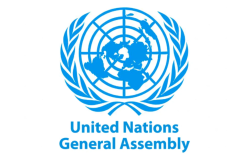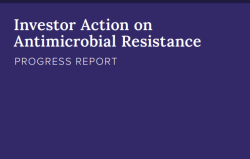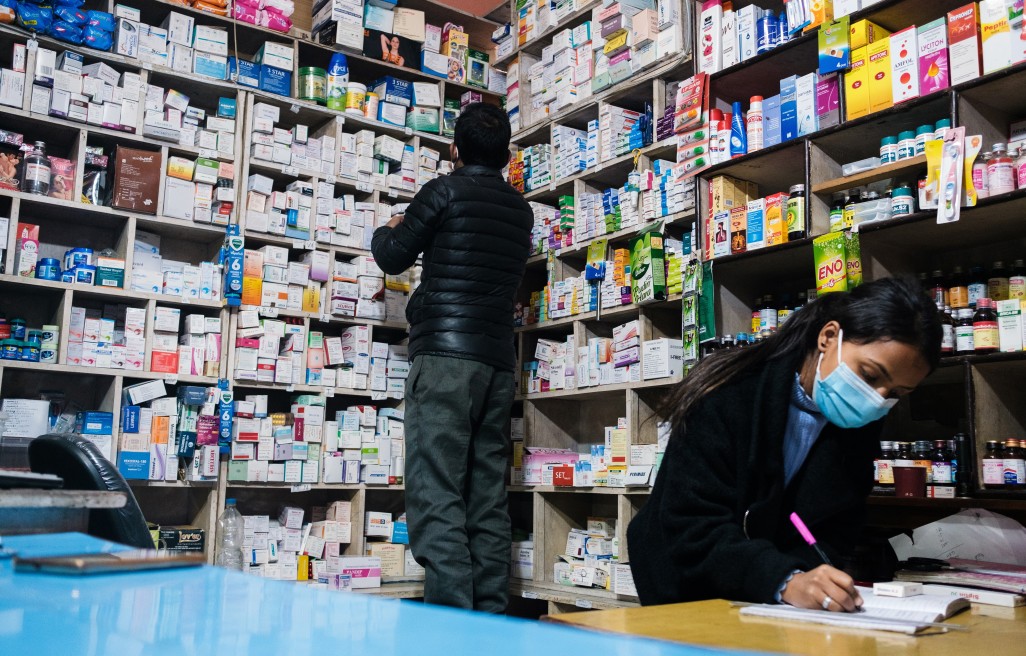Antimicrobial Resistance Programme
The scale of the problem
Superbugs know no borders, putting the lives of people in countries across the globe at risk. However, for people living in low-and middle-income countries (LMICs), where the burden of infectious diseases is already higher, this risk is an everyday reality – especially for the most vulnerable, including infants and children, and for those living in countries facing the highest threats of drug resistance. Oftentimes, patients in LMICs don’t have access to newer treatments that are effective against drug-resistant pathogens, leaving them vulnerable at best – or proving fatal at worst.
Aside from rendering many existing antibiotics and antifungals ineffective against drug-resistant infections, AMR puts many of the gains of modern medicine at risk. Commonplace infections are becoming harder to treat and it makes standard medical procedures and treatments – including surgery, caesarean sections and cancer chemotherapy – much riskier.
Mobilising companies to take action
Since 2017, the Access to Medicine Foundation has been tracking how pharmaceutical companies active in the antimicrobials space have taken action to combat drug resistance and ensure appropriate access to their products in LMICs. Across three iterations of the AMR Benchmark (2018, 2020, and 2021), the Foundation has pinpointed specific actions each major company in scope can take across key areas:
Research and development
Responsible manufacturing
Appropriate access
Stewardship
Good practice is becoming more common in the actions taken by pharmaceutical companies across these areas to limit the threat of AMR. This is most notable in the plans to ensure wider access to and responsible use of future products, as well as in the steps taken to curb the release of antibacterial waste into the environment. In stewardship, generic medicine manufacturers are taking a more active role. However, all companies miss opportunities to improve access in LMICs, where the need is greatest and where people face the greatest threat from drug-resistant infections.
To guide companies in taking more targeted action in specific areas where gaps remain, the AMR Research Programme has published a series of thematic studies that delve deeper into the key areas assessed in the AMR Benchmark.
The findings and recommendations from the AMR Benchmark and AMR research reports provide clear, actionable steps that pharmaceutical companies and key stakeholders can take to address international priorities on AMR. Using our insights, companies and stakeholders can propagate best practices and identify where more needs to be done.
Active engagement to drive sustainable change
Through our extensive work over the last eight years, the Foundation has also become a go-to source of expertise on AMR, engaging widely with a variety of stakeholders and offering inputs and insights that can help the world tackle this grave threat.
“The Access to Medicine Foundation’s report on Antimicrobial Resistance and Responsible Manufacturing is a welcomed and much-needed analysis. This is a major changemaking tool for all sectors - and shows that leadership, collaboration and innovation can improve antibiotic supply chains and curb the drivers of AMR and its impact on our shared environment. I invite all stakeholders to dive into the report and use these findings to make antibiotic manufacturing more sustainable for all.”
UN General Assembly High-Level Meeting on AMR
In advance of the Nations General Assembly (UNGA) High-Level Meeting on AMR, which took place in September 2024, the Foundation prepared a policy briefing in May. The briefing, which covers access, stewardship, supply, R&D and manufacturing, was punctuated by powerful insights from the Foundation’s AMR Programme and sets out five key areas that delegates should prioritise when engaging the pharmaceutical industry on combatting AMR.
The briefing was disseminated widely by the Foundation’s Government Engagement team at key engagements prior to UNGA, including the UN Multi-stakeholder Hearing on AMR held by the President of UNGA in May 2024.
As part of the outcomes of UNGA and its political declaration, a commitment was made to update the Global Action Plan on AMR (GAP). We are now participating in the open consultation process for the updated GAP following UNGA.

What the High-level meeting should prioritise when engaging the pharmaceutical industry on combatting antimicrobial resistance
Read moreOngoing work with investors
As concerns over environmental, social and governance (ESG) issues grow across all industry sectors, more and more investors are actively pushing for pharmaceutical companies to demonstrate a truly sustainable profile. Our systematic analyses offer pharma companies a valuable framework for designing and improving their access strategies, while also facilitating constructive communication between investors and boards.
We also work with investors directly, helping them to engage pharma companies through roundtable discussions, research launches, collective calls to action and collaborative engagements. We support investors in making investment decisions, providing insights based on independent and reliable evidence. Launched in 2020, the Investor Action on Antimicrobial Resistance initiative focuses on the role of capital markets in tackling the global threat of rising drug-resistant infections.

Investor Action on Antimicrobial Resistance progress report
Read moreThe path forward
Antimicrobial resistance is not a problem for the future, it is here already. We know what needs to be done to counter the rising tide of drug resistance – and save lives. With tried and tested policies and practices in the playbook, the pharmaceutical industry must accelerate its efforts against this global health security threat, with support from policymakers and investors, and through partnerships.
Bringing about large-scale change in the pharma industry is no small challenge – but each positive step has the potential for huge impact.
“Those facing the highest risk of infection and the highest rates of drug resistance have the hardest time getting the antibiotics they need. To redress this lack of equity, pharma must expand its focus beyond stewardship and the hunt for replacement antibiotics. Access to these new medicines, as well as those already on the market, must get the same level of attention.”
Research hub
Learn more about our work in AMR
